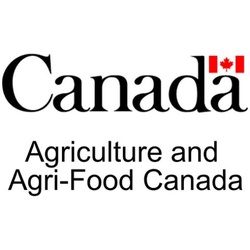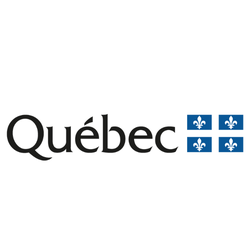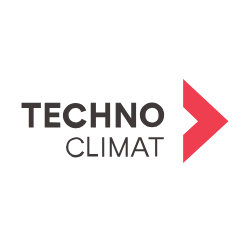
Open
AgriAssurance Program — Kosher and Halal Investment – Not-for-profit
Last Update: December 4, 2025
QC, Canada
Supporting kosher and halal red meat quality assurance systems
Grant and Funding
At a glance
Funding available
Financing goals
Develop employee skills
Eligible Funding
- Maximum amount : 350,000 $
- Up to 75% of project cost
Timeline
- Closing date : September 30, 2027
Eligible candidates
Eligible Industries
- Manufacturing
Location
- Quebec
Legal structures
- Non-profit
- Public or Parapublic institution
- For-profit business
Annual revenue
- All revenue ranges
Organisation size
- All organization sizes
Audience
- Indigenous Peoples
- Persons with Disabilities
- Language Minorities
- 2SLGBTQI+
- Youth (<40)
- Women
Non-profit candidates
Sector of operation
- Environment
- Animal Protection
- Economic, Social and Community Development
- Business Associations
- Professional Associations
- Diversity and Inclusion
Target groups
- Children & youth
- Indigenous peoples
- People with disabilities
- Women & girls
- LGBTQ+ community
- Business owners / entrepreneurs
- Nonprofits / charities
- Academia / students
- Minority groups
Revenue structures
- All structures
Scope
- Regional
- National
Overview
The AgriAssurance Program: Kosher and Halal Investment Component offers up to $350,000 per year for eligible not-for-profit organizations to develop quality assurance systems tailored to the Canadian kosher and halal red meat sectors. The program supports activities such as creating guidance documentation, integrating systemic approaches, and enhancing market credibility for kosher and halal products.
Activities funded
- Develop, maintain, integrate, and implement assurance systems, standards, and tools.
- Communicate and facilitate knowledge transfer and dissemination of standards, systems, and tools.
- Acquire expertise to develop best practices guides for the sector, such as train-the-trainer documentation.
- Develop additional downstream guiding materials for slaughter plant employees to help them efficiently implement new tools and processes.
- Update existing tools and standards as needed.
Examples of admissible projects:
$ 60,000
Provide job training for marginalized youth
$ 50,000
Construct a sustainable urban garden space
$ 65,000
Develop a mobile app for local farmers' markets
$ 40,000
Create an artisan skill-sharing workshop series
$ 45,000
Launch a community-driven recycling program
$ 70,000
Set up an e-learning platform for indigenous languages
Eligibility
- The applicant must be a not-for-profit organization operating for social welfare, civic improvement, pleasure or recreation, or another non-profit purpose, including associations of workers and/or employers, community, charitable, voluntary organizations, sector councils, or not-for-profit corporations.
- The applicant can also be an Indigenous organization, which includes First Nations, Inuit, or Métis communities and/or governments, associations, or not-for-profit organizations.
- The applicant must have the ability to deliver a national scope project, encouraging stakeholder participation and support, and implementing it on a national scale.
- The applicant must be a legal entity capable of entering into legally binding agreements.
- Eligible activities include developing, maintaining, integrating, and implementing assurance systems, communicating and facilitating knowledge transfer, developing best practices guides, and updating existing tools and standards as needed.
Who is eligible?
- Not-for-profit organizations operating for social welfare, civic improvement, or similar non-profit purposes, including associations of workers or employers, local community groups, and sector councils.
- Corporations registered as not-for-profit entities.
- Indigenous organizations, including First Nations, Inuit, and Métis communities and their respective associations, both not-for-profit and for-profit.
Eligible expenses
- Costs related to the development, maintenance, integration and implementation of assurance systems, standards, and tools.
- Expenses incurred for the communication and facilitation of knowledge transfer and dissemination of standards, systems, and tools.
- Consulting fees for obtaining expertise to create best practices guides for the sector, such as train-the-trainer documentation.
- Expenditures for the creation of additional guiding materials for slaughter plant employees to efficiently implement new tools and processes.
- Funding for the update of existing tools and standards as needed.
Selection criteria
- Completeness of the application and eligibility of the proposed project.
- Alignment of proposed activities with program objectives.
- Identification of all funding sources, including in-kind support.
- Capacity to deliver the project, considering resources, timelines, and history with AAFC programming.
- Reasonableness and necessity of proposed activities and costs to meet objectives.
- For not-for-profit organizations: Demonstrating a current or potential market need or opportunity.
- Potential for the project to influence the sector over the next 5 to 10 years, addressing urgency of demand or need.
- Contribution to government priorities such as diversity, inclusiveness, sustainability, economic growth, and public trust building.
How to apply
1
Understand program details
- Check the intake period: open until September 30, 2027
- The program ends March 31, 2028
- Program contributes up to $350,000/year for not-for-profits
- Priority on projects addressing consumer confidence and market demand
2
Confirm eligibility criteria
- Eligible organizations include not-for-profit entities and Indigenous organizations
- Ensure you can deliver a project nationally
- Projects must support program objectives and outcomes
3
Prepare for eligibility assessment
- Identify all sources of funding, including your contributions
- Your project costs should be eligible as of April 1, 2025
- Consider federal, provincial, and partner contributions
4
Compile application documents
- Gather necessary documentation such as financial statements and incorporation certificates
- Download and complete all required forms including project budget and implementation plan
- Ensure accuracy in detailing project activities and objectives
5
Submit complete application
- Submit completed application with all supporting documents
- Ensure your application meets all eligibility and assessment criteria
- Verify the application form is filled out in full detail
6
Await application results
- Wait for notification regarding your application's status
- Be prepared to provide additional information if requested
- Expect communication from AAFC about the decision timeline
Additional information
- The intake period for application submissions may close earlier than the set deadline if the funding has been fully committed.
- Projects are required to align with the government’s priorities, such as diversity, inclusiveness, sustainability, and economic growth.
- The program encourages early communication with AAFC for confirmation of eligibility and valuation of in-kind contributions to avoid potential disallowance or undervaluation later in the process.
- The intellectual property created through the funded project will be owned by the recipient but must grant usage rights to AAFC for government purposes.
- Quebec-based applicants must demonstrate compliance with the Province of Quebec's M-30 legislation during the application process.
Contacts
aafc.assurance.aac@agr.gc.ca
1-877-246-4682
QC, Canada
Apply to this program
Frequently Asked Questions about the AgriAssurance Program — Kosher and Halal Investment – Not-for-profit Program
Here are answers to the most common questions about the AgriAssurance Program — Kosher and Halal Investment – Not-for-profit. This section explains what the program is, how much funding is available, eligibility requirements, application deadlines, and other important details to help you determine if this grant is right for your business.
What is the AgriAssurance Program — Kosher and Halal Investment – Not-for-profit?
How much funding can be received?
Who is eligible for the AgriAssurance Program — Kosher and Halal Investment – Not-for-profit program?
What expenses are eligible under AgriAssurance Program — Kosher and Halal Investment – Not-for-profit?
Who can I contact for more information about the AgriAssurance Program — Kosher and Halal Investment – Not-for-profit?
Where is the AgriAssurance Program — Kosher and Halal Investment – Not-for-profit available?
Is the AgriAssurance Program — Kosher and Halal Investment – Not-for-profit a grant, loan, or tax credit?
Apply to this program
More programs like this

Grant and FundingClosed
MAPAQ — Food Processing Program — Component 2
Ministry of Agriculture, Fisheries and Food (MAPAQ)Enhancing productivity through food industry automation assistance

Grant and FundingOpen
Support for biofood exports - individual projects
Ministry of Agriculture, Fisheries and Food (MAPAQ)SEB supports Quebec agri-food market expansion outside Quebec

Grant and FundingOpen
ÉcoPerformance — Recommissioning of building mechanical systems
Gouvernement du QuébecFunding to optimize the operation of building mechanical systems

Grant and FundingSuspended
Individual Market Access Support (SIAM)
Aliments du QuébecMarket Access Support for Quebec Food Processors

Grant and FundingClosed
GHG Challenge Program - Industry
Environnement Québec (MELCC)Supports major industrial projects reducing greenhouse gas emissions

Grant and FundingOpen
Economic development program to help revitalize territories (DEPART)
Investissement Québec (IQ)DÉPART supports economic diversification and growth in targeted areas

Grant and FundingOpen
Innovative Projects Program
Hydro-QuébecSupports innovative, energy-efficient projects for multi-building developments

Grant and FundingOpen
Technoclimat
Environnement Québec (MELCC)Financial assistance for the demonstration of new technologies in Quebec

Grant and FundingClosed
Support program for positioning Quebec alcohol in the SAQ network
Ministère de l'économie, de l'innovation et de l'énergie du Québec (MEIE)Supports Quebec alcoholic beverage producers in the SAQ network

Partnering and CollaborationGrant and FundingClosed
Biofood Innovation Program Component 2 – Applied research, experimental development and technological adaptation
Ministry of Agriculture, Fisheries and Food (MAPAQ)Québec biofood sector innovation and knowledge transfer grant
Sign up to our platform to access the AgriAssurance Program — Kosher and Halal Investment – Not-for-profit information sheet for free
Get access to 4,000+ programs, practical guides, personalized alerts, and an AI assistant to support your grant applications.